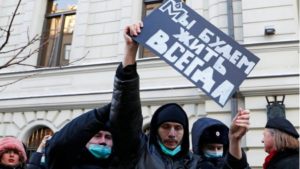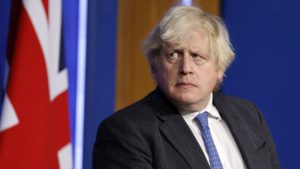Kazakhstan’s government uncapped the price of gas on January 1, leading to protests ravaging the country for the following days. On January 5, President Tokayev announced a two-week state of emergency, as well as the dismissal of Prime Minister Askar Mamin and his cabinet. Later that day, telecommunications giant Kazakhtelecom shut off internet access throughout the country, with the government blocking social networks such as WhatsApp, Facebook and Telegram. On January 7, Kazakh President Kassym-Jomart Tokayev gave security forces permission to “fire without warning”. So far, 4,000 protesters have been detained, and dozens have died on both sides.
After the cap was lifted, gas prices quickly doubled, exacerbating income disparities that were already present in Kazakhstan. This led people to take to the streets to show their discontent towards the government. Demonstrations are relatively rare in Kazakhstan, yet protesters in the city of Almaty attacked the city hall and are burning down police cars. Tens of thousands more are demonstrating in the oil-rich cities of Zhanaozen and Aktau, and police officers are reacting with tear gas and stun grenades.
On January 7, President Tokayev thanked Russian President Vladimir Putin for sending an additional 2,500 troops to Kazakhstan as a member of the Collective Security Treaty Organization.
On January 5, Tokayev announced the decision to put a price cap on vehicle fuel and the replacement of the current Kazakh cabinet. The new cabinet is headed by Prime Minister Alihan Smaiylov, who served as Minister of Finance from 2018 to 2020. President Tokayev also declared a state of emergency, with curfews from 11:00p.m. to 7:00a.m., restrictions on movement, and a legal ban on protests without a permit.
In his speech, he stated “As the head of state, I plan to act as toughly as possible. This is a question of the safety of our country. I am certain that the people will support me.” When asked about the protests, Tokayev described them as part of a “meticulously thought-out plan of conspirators, who were motivated financially.” In an address to the nation, Tokayev said “We hear calls from abroad for the parties to negotiate to find a peaceful solution to the problems. This is just nonsense. What negotiations can there be with criminals and murderers. They need to be destroyed and this will be done.”
President Tokayev also announced his replacement of former President Nursultan Nazarbayev as head of Kazakhstan’s Security Council. Nazarbayev had ruled the country since the collapse of the Soviet Union and its subsequent independence. Many Kazakhs see Tokayev as a handpicked successor to Nazarbayev, who has only been ruling in his predecessor’s shadow since 2019. Recently, Kazakhstan’s capital city was renamed Nur-Sultan, after Nazarbayev’s first name, representing his national influence. In retaliation to this, protestors in the city of Aktau were shouting “old man out!” the day before Tokayev’s momentous announcement. Nazarbayev still holds the title of “Leader of the Nation”.
Meanwhile, pro-Kremlin media in Russia have been describing these events as a “dirty trick played on Moscow” before crucial talks between Russia and the U.S. and NATO, attempting to demonstrate the ineffectiveness of authoritarian governments. Chinese leader Xi Jinping expressed support for Tokayev, condemning any force that destabilises Kazakhstan. With a population of about 19 million and a GDP of about $9000 as of 2020, as well as resource-rich lands and a shared border with Russia and China, the consequences of Tokayev’s measures to quell Kazakh protests could have a lasting impact on international relations.







